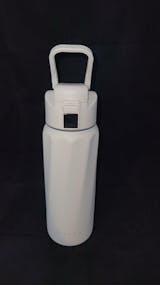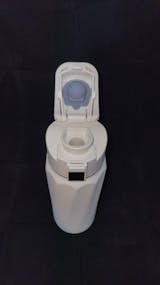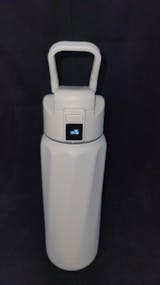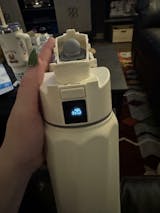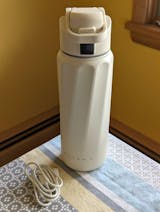
Dream Hydration: How Nighttime Water Intake Affects Sleep and Lucid Dreams
Hydration isn't just important during the day—it also plays a crucial role while you sleep. But what happens when you drink water right before bed? Does it help or harm your rest? And could it even influence your dreams—perhaps even trigger lucid dreaming? This blog will explore the fascinating connection between nighttime water intake, sleep quality, and the dream world.
The science of sleep and hydration

Your body continues to work hard during sleep. It uses water to regulate body temperature, repair tissues, balance hormones, and detoxify. Proper hydration helps these processes run smoothly.
When you're even slightly dehydrated, your sleep can suffer. You may experience dry mouth, muscle cramps, elevated heart rate, or overheating. These can make it harder to stay in deep, restorative sleep, especially REM sleep, the stage most closely associated with vivid and lucid dreams.
The pros and cons of drinking water before bed

✅ Pros:
- Prevents waking up dehydrated.
- Supports the body’s natural detoxification processes.
- May improve skin health and nasal/sinus comfort during dry nights.
⚠️ Cons:
- Drinking too much too late can lead to nocturia, frequent nighttime urination.
- Disrupts sleep cycles, especially REM, if you're waking up repeatedly.
- Increases the likelihood of fragmented dreams and reduced dream recall.
Nighttime hydration and lucid dreaming

What is lucid dreaming? It's when you're aware that you're dreaming, sometimes even able to control the dream itself. While it takes practice for most people, hydration may play a small but interesting role.
Some lucid dreamers report greater success when they hydrate properly before bed. Why? One theory is that staying hydrated helps you achieve deeper REM sleep and improves dream recall, both essential for lucid dreaming.
Interestingly, waking up briefly in the night to use the bathroom helps with lucid dreaming. This aligns with the Wake-Back-to-Bed (WBTB) method, a popular technique in which you wake up after a few hours, stay awake briefly, and then go back to sleep while maintaining awareness.
How much water is too much at night?
Many people find drinking a full glass of water before bed too much. Experts recommend focusing on hydrating throughout the day and tapering off fluids 1–2 hours before sleep.
Signs you’re overdoing it:
- Waking up more than once to urinate.
- Trouble falling back asleep.
- Morning fatigue despite a full night in bed.
Instead, aim to drink enough in the early evening so you're not parched by bedtime but not overhydrated.
Tips for using hydration to support sleep and dreaming

- Stay hydrated all day: Spread your water intake evenly.
- Taper off after dinner: Begin reducing fluids after 7–8 p.m.
- Snack on hydrating foods: Add cucumber, watermelon, or celery to your evening meals.
- Limit diuretics at night: Avoid caffeine and alcohol in the hours before bed.
- Keep a water reminder water bottle by your bed: Sip if needed, but don’t gulp.
- Try a sleep-friendly herbal tea: Chamomile or lemon balm infusions, and hydrate gently and promote rest.
FAQs
Can water influence dream content?
Indirectly, yes. Being well-hydrated supports REM sleep, where vivid dreams happen. Discomfort from dehydration or overhydration can influence dream tone or wake you mid-dream.
Can dehydration cause nightmares?
Some studies and anecdotal reports suggest that physical stress from dehydration may increase the chance of experiencing nightmares.
Is it better to drink warm or cold water before bed?
Warm water is gentler on the stomach and may have a calming effect—ideal if you need a small sip before bed.
Conclusion
Water is essential for good sleep, but timing and balance are key. A well-hydrated body supports healthy sleep cycles, dream clarity, and even the potential for lucid dreaming. But too much water too close to bedtime can sabotage those benefits. Try experimenting with your hydration habits to find a routine supporting restful sleep and dream exploration.
Follow WaterH, sleep well, stay hydrated, and happy dreaming.












